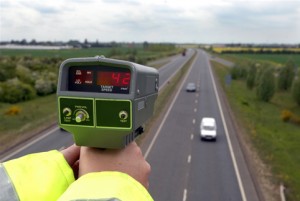Speeding is the most common offence committed by motorists
Speeding Offences
Speeding is the most common offence committed by the motorist. Speeding allegations can be resolved in the following ways:
- Attending a speed awareness course (at the discretion of the Police)
- Accepting a Fixed Penalty of 3 points and £60 fine;
- For more serious offences, or disputed cases, attending Court.
The penalty range is from 3–6 penalty points and the current maximum fines are up to £2,500 for motorway offences and up to £1,000 for offences on any other road.
In the most serious cases, where the motorist is either 50% or 30 mph+ above the limit, an instant disqualification can be imposed. With our specialist advice, we can assist you in minimising the punishment and in many cases, avoiding disqualification.
Likewise, we can help you in limiting the amount of a fine, and can also guide you through the Court process. Speak to pattersonlaw.co.uk leading speeding offence specialists to establish how we can prepare a defence and/or mitigation argument that gives you the best chance of keeping your licence.
What are my options for defending a speeding allegation?
The first issue is whether you accept that you were above the speed limit. If so, you can either accept the allegation in full or alternatively, you can argue the exact speed alleged. Whilst either option will result in a guilty plea, the latter, known as a Newton Hearing, allows you to dispute the exact speed with a view to obtaining a reduced punishment.
If you deny breaking the speed limit, then your only option is to plead not guilty via a Court hearing.
Can I contest or challenge a speeding fine?
Yes. Your options are to contest the speed itself (whilst conceding that you are travelling too quickly) or to deny the allegation in its entirety. Either tactic will require Court proceedings and in all probability a full hearing at which you will have to attend or be represented.
If you receive an NIP warning (Notice of Intended Prosecution) that you are being prosecuted for exceeding the speed limit but you are of the belief that there were not any specific speed limit signs in place, then you should check the street lighting system that exists, because if the lamps are placed at no more than 200 yards apart, the limit is lawful.
On roads where there is no lighting, or the lamps are not situated at a distance of no more than 200 yards from one another, the speed limit can only be enforced by signs indicating the speed limit.
Be sure that you have all the facts to defend your offence, as for expert advice today.


